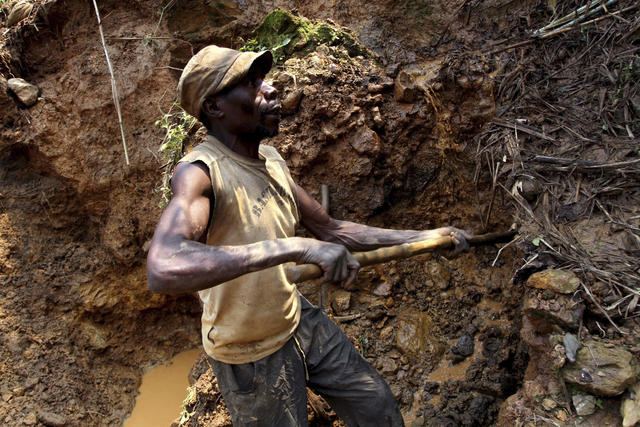
Recent evidence has emerged indicating that Apple is obtaining minerals from regions in eastern Democratic Republic of Congo that are affected by armed violence
On Wednesday, international lawyers representing the government of the Democratic Republic of Congo announced that they possess further evidence obtained from whistleblowers. This evidence further raises concerns regarding Apple’s potential sourcing of minerals from conflict-ridden areas in eastern Congo.
The lawyers issued a statement, urging Apple to provide clarifications regarding its supply chain operations in the country. They also mentioned that they are currently assessing potential legal courses of action. Apple did not promptly reply to a request from Reuters for comment.
The Democratic Republic of Congo has experienced widespread violence during the 1990s, especially in the volatile eastern region. Numerous armed factions, some purportedly supported by neighboring Rwanda, engage in conflicts related to national identity, ethnicity, and resource control.
On April 22, Congo’s legal representatives formally informed Apple CEO Tim Cook with a range of concerns pertaining to its supply chain. Additionally, they corresponded with Apple companies in France, requesting detailed responses within a three-week timeframe.
The law company Amsterdam & Partners LLP is now conducting an investigation into claims that minerals extracted in Congo by many firms and armed groups are being illicitly transported out of the country through Rwanda, Uganda, and Burundi.
In a statement released on Wednesday, the company reported that, after a span of four weeks, the technology behemoth has chosen not to respond or acknowledge the receipt of the inquiries.
According to Robert Amsterdam, one of the attorneys, the firm has just obtained additional evidence from individuals who have exposed wrongdoing.
“Now, more than ever, it is imperative for Apple to furnish concrete responses to the highly significant inquiries we have posed,” he declared in the official statement.
Apple has previously stated that it does not directly acquire or obtain primary minerals. The company has been conducting audits on its suppliers for a number of years and making the results public.
According to a study from last year, all smelters and refiners involved in the production of Apple products in 2023 underwent an independent third-party assessment to assess their compliance with conflict mineral regulations. This audit specifically focused on the presence of tin, tantalum, tungsten (known as 3T minerals), and gold (3TG) in the supply chain.
The Apple report stated that there was no justifiable evidence to suggest that any of the smelters or refiners of 3TG identified in our supply chain as of December 31, 2023, provided financial support or advantages to armed organizations in the Democratic Republic of Congo or a neighboring nation.
Peter Sahlas, a lawyer at Amsterdam & Partners LLP, said Reuters that individuals involved in Apple’s supply chain verification in Congo have reported that their contracts were terminated after raising concerns about the presence of “blood minerals” in Apple’s supply chain.
“We are actively interacting with these individuals and assessing their evidence. We will provide additional information once we have thoroughly verified it,” Sahlas stated, refraining from providing any additional specifics.
Following the letter written by Congo lawyers in April, there has been an escalation of conflicts in eastern Congo, where M23 rebels have successfully taken over Rubaya, a crucial mining town known for its coltan reserves, which are utilized in the production of cellphones and other electronic devices.
All Categories
Recent Posts
Tags
+13162306000
zoneyetu@yahoo.com



